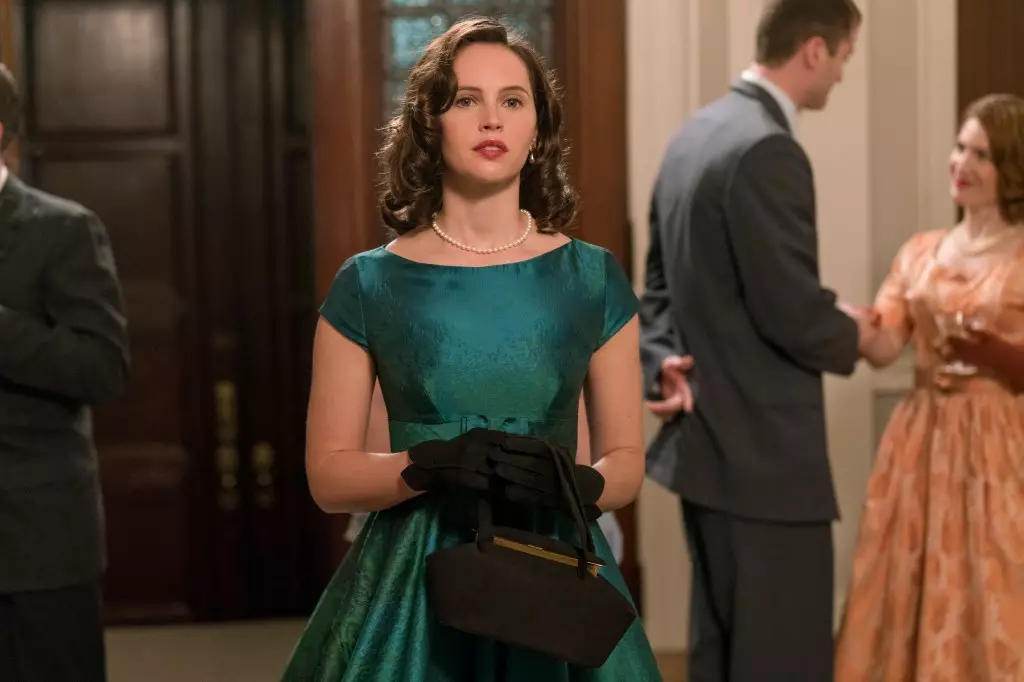Historical figures have always been a popular subject for filmmakers to explore, giving audiences a glimpse into the lives of impactful individuals throughout history. These biographical films often portray triumphs, struggles, and tragedies, making them appealing to a wide range of viewers. From Nobel laureates to political leaders, the cinematic treatment of historical figures has become a staple in the film industry.
One of the most acclaimed historical biopics is “The Imitation Game” (2014), which tells the story of Alan Turing, a British cryptanalyst who played a crucial role in breaking the German Enigma Code during World War II. Benedict Cumberbatch delivers a stellar performance as Turing, showcasing the challenges and achievements of the brilliant mathematician. The film is a testament to Turing’s genius and the obstacles he faced in his quest to decode the Enigma machine.
“On the Basis of Sex” (2018) highlights the life of Ruth Bader Ginsburg, a trailblazing Supreme Court Justice who fought for gender equality and civil rights. Felicity Jones embodies the spirit of Ginsburg, portraying her journey from a young law student to a respected legal scholar. The film showcases Ginsburg’s determination and resilience in the face of adversity, inspiring audiences to stand up for justice and equality.
“The Theory of Everything” (2014) delves into the extraordinary life of physicist Stephen Hawking, who battled motor neuron disease while making groundbreaking discoveries in the field of astrophysics. Eddie Redmayne delivers a powerful performance as Hawking, portraying his struggles and triumphs with grace and authenticity. The film is a poignant tribute to Hawking’s resilience and intellect, capturing the essence of his groundbreaking work and personal life.
“Lincoln” (2012) offers a glimpse into the life of the iconic U.S. president, Abraham Lincoln, portrayed masterfully by Daniel Day Lewis. Directed by Steven Spielberg, the film chronicles Lincoln’s efforts to abolish slavery and unite a divided nation during the Civil War. The stellar cast brings to life the historical figures surrounding Lincoln, painting a vivid picture of a pivotal moment in American history.
“Oppenheimer” (2023) delves into the life of J. Robert Oppenheimer, the brilliant yet troubled scientist known as the father of the atomic bomb. Cillian Murphy delivers a haunting performance as Oppenheimer, showcasing his moral dilemmas and conflicted legacy. Directed by Christopher Nolan, the film explores the complex relationships and decisions that shaped Oppenheimer’s life and career, offering a nuanced portrayal of a controversial figure in history.
“Jackie” (2016) portrays the life of Jacqueline Kennedy in the aftermath of President John F. Kennedy’s assassination. Natalie Portman delivers a captivating performance as Jackie, capturing the First Lady’s strength and vulnerability during a time of national tragedy. The film provides a rare glimpse into Jackie’s private struggles and public persona, shedding light on the complexities of grief and resilience.
“Napoleon” (2023) delves into the life of the iconic French emperor, Napoleon Bonaparte, portrayed by Joaquin Phoenix. Directed by Ridley Scott, the film traces Napoleon’s meteoric rise to power and eventual downfall, exploring his ambition, conquests, and personal relationships. Vanessa Kirby shines as Josephine, Napoleon’s beloved wife, adding depth and emotion to the epic tale of one of history’s most enigmatic figures.
Historical biopics offer a window into the lives of iconic individuals who have shaped the course of history. Through compelling performances, meticulous storytelling, and stunning visuals, these films bring a human touch to larger-than-life figures, allowing audiences to connect with the struggles and triumphs of historical legends. As cinema continues to evolve, the influence of historical biopics will remain a powerful and enduring force in storytelling, inspiring future generations to explore the rich tapestry of human experience.


Leave a Reply